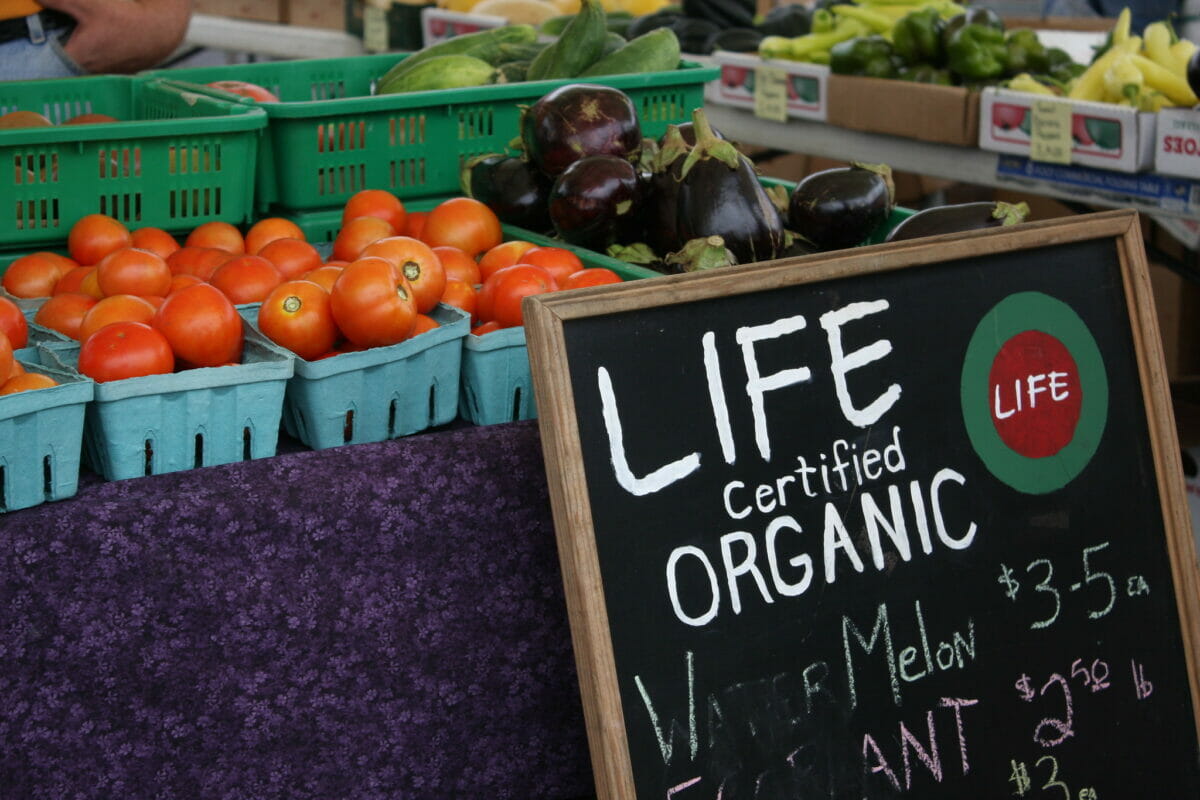A new initiative aims to support growers and strengthen the organic food market.

In an effort to support farmers in the transition from conventional to organic farming, the USDA will invest $300 million in a new Organic Transition Initiative.
On the pathway to certified organic farming, growers are required to adopt organic practices—such as restricted inputs and a ban on synthetic pesticides—for at least 36 months before the crops can be considered for certification. During this often challenging time for farmers, the USDA’s new program, announced earlier this week, aims to support growers in hopes of strengthening the organic market.
The plan aims to create more streamlined pathways from conventional to organic farming and “allow for new and better streams of income for farmers and producers,” according to the USDA’s announcement.
The department has a three-pronged plan to support the growth of the organics industry—allotting $100 million for each portion of the plan.
First, mentoring, advice and education will be available to farmers through the Transition to Organic Partnership Program (TOPP) in the form of regionally based training and workshop options.
Second, the program will enact direct farmers’ assistance, providing both financial and technical support to growers throughout the transition process, as well as help with crop insurance.
The final piece of the initiative involves finding innovative ways to build the organic market and supply chain through partnerships and stakeholders, with the goal of mitigating current market development risks in part due to “inadequate organic processing capacity and infrastructure, a lack of certainty about market access, and insufficient supply of certain organic ingredients,” according to the press release.
The initiative comes in reaction to a sharp drop in farms attempting to transition to organic practices, a number that has plummeted by 71 percent since 2008.
“Farmers face challenging technical, cultural and market shifts while transitioning to organic production, and even during the first years after successful organic certification,” said Agriculture Secretary Tom Vilsack in the initiative’s announcement. “Through this multi-phased, multi-agency initiative, we are expanding USDA’s support of organic farmers to help them with every step of their transition as they work to become certified and secure markets for their products.”
Organic is a good first step and represents progress, but regenerative agriculture is what is needed to address climate change, soil loss, water shortages, food security, etc.
Invests? Nope wastes. The whol organic marketing scheme is based on the appeal to nature fallacy. This is primitive in nature not modern. The use tillage and machamocal weed control which damages soil structure and leaves it exposed to erosion. The yields are lowers under most circumstances and the prices for consumers are higher. This combination is a good chunk of what led to the recent collapse in Sri Lanka. Vilsack knows better. He failed to use his spine to stand up to the political pressure. Besides all of that, no businesses should receive subsidies.
Whole Foods might have some good ideas
I’m sorry but lets get real about organic farming. The notion that small amounts of synthetic fertilizer and modern pesticides causes any harm to the environment and to health is absurd. its a scam and it actually hurts small farmers. ‘corporate’ or otherwise large farms that can navigate the bureaucracy are the only ones that benefit from this govt run program. Organic farming requires more land for the same output not to mention more spoilage and waste. We need to encourage people as much as possible to buy locally and regionally from farmers’ markets or supermarkets willing to buy local.… Read more »